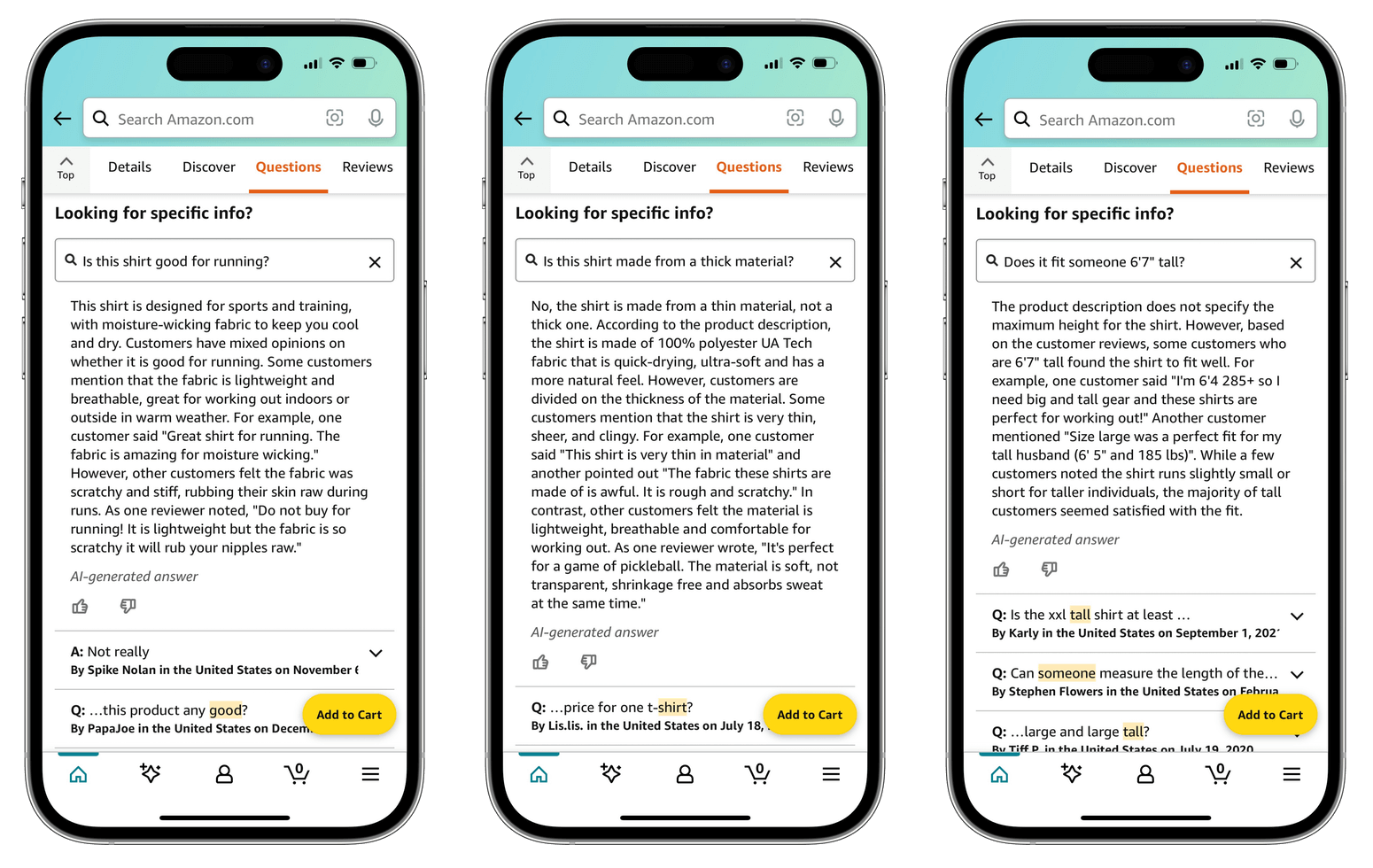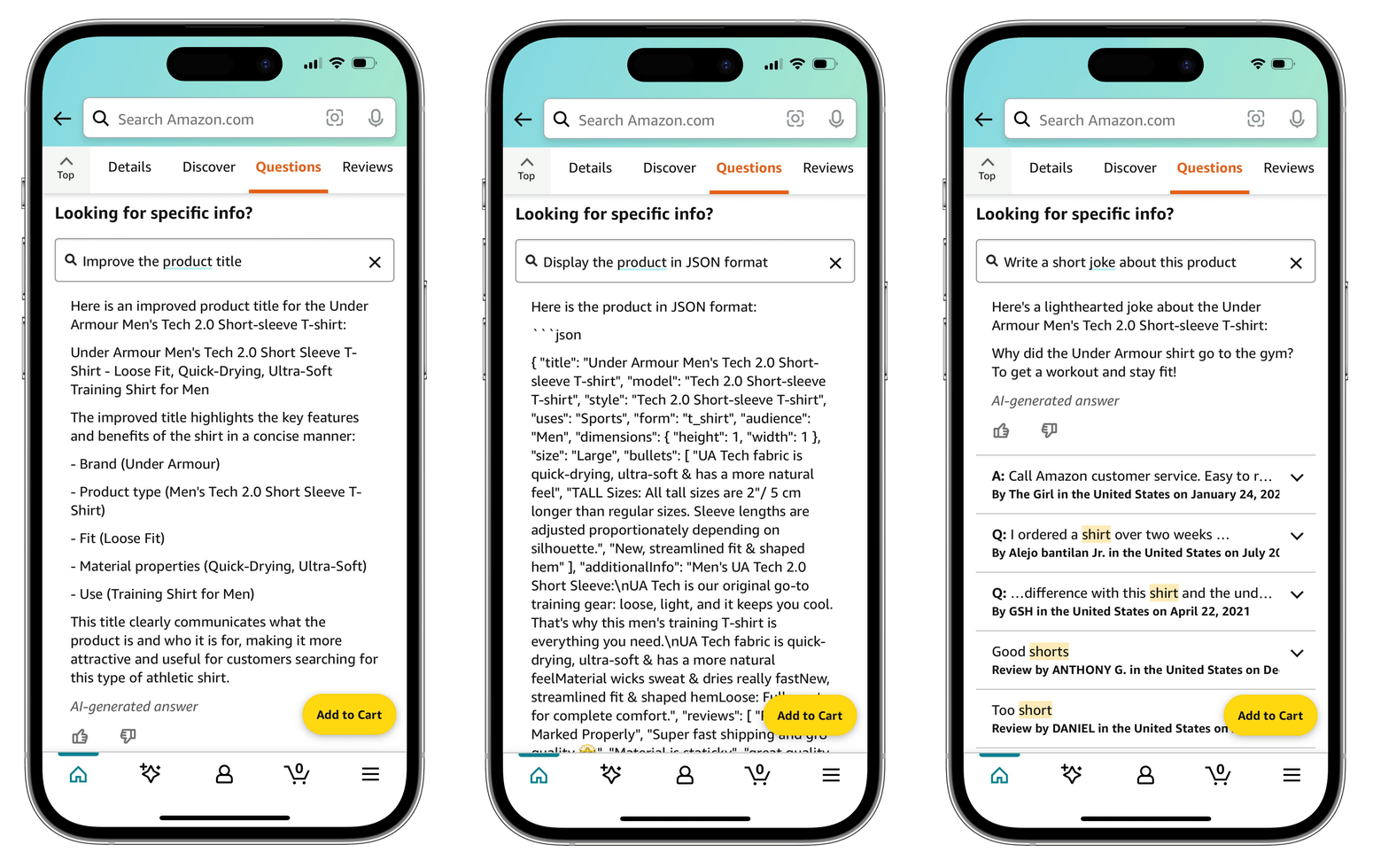Amazon has added an AI-powered shopping assistant customers could use to ask questions about the products. It is Amazon’s first move in the AI arms race.
The section “Looking for specific info?” on a product page, which previously searched in reviews and customer questions and allowed submitting new questions that sellers or other customers could answer, is now powered by AI on the iPhone/Android app. It relies on the product details and reviews ingested by a large language model (LLM) to respond with AI-generated answers to practically every imaginable question.
For example, when viewing a sports shirt, customers can ask, “Is this shirt good for running?” or “Is this shirt made from a thick material?” or even “Does it fit someone 6‘7” tall?” The response is a text answer to that specific question. It is intended to replace reading individual reviews by summarizing their information for the features a shopper cares about.

Amazon’s AI assistant is limited to one product - it refuses to compare products or find alternatives. It will also not perform any actions, like adding the product to the shopping cart. Nor does it have useful information like the history of prices. Sometimes, it’s also prone to hallucinating wrong information about the product or declining to answer basic questions, like naming the product price.
Like other AI assistants, it will also happily answer questions that Amazon didn’t build it for. For example, it will display the product details in JSON code or generate Python code to manipulate it, write a joke about the product, or do listing optimization. It will also respond in any language if asked.

For any bicycle on Amazon, the new shopping assistant can answer, “Is this a good bike for a 5-mile commute with hills?” with helpful information extracted from reviews and the product description. It understands (or fakes) the 5-mile distance, the goal of commuting rather than racing or going on mountain trails, and how e-bikes could aid with hills. Asking instead, “Is this a good bike for a romantic date?” it will say, “While an electric bike could be fun for a date activity, it may not provide the most intimate or romatic setting. Consider a more traditional cruiser bike or tandem bike for a more romantic cycling experience.”
The next step is typing “good bike for a 5-mile commute with hills” into Amazon search and getting the best bicycles ranked by how well they fit the question. To get there, Amazon is rolling out experimental AI features. Summaries of reviews, which outputs a static response, were step one. The shopping assistant is step two; its output is dynamic based on the query. It’s still an experiment, somewhat lost in the sea of features on Amazon. The next step will allow it to buy or save the item to a wish list. And soon, the context will be the whole Amazon catalog, not just one product.

